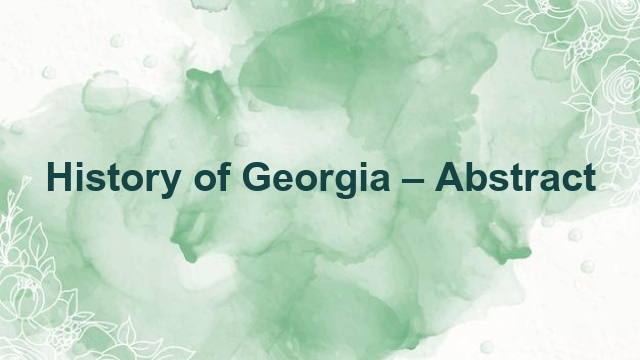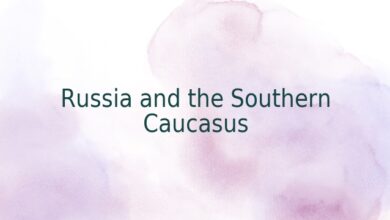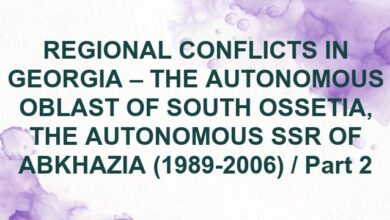
Georgia became a kingdom about 4 B.C. and Christianity was introduced in A.D. 337. During the reign of Queen Tamara (1184–1213), its territory included the whole of Transcaucasia. During the 13th century, Tamerlane and the Mongols decimated its population. From the 16th century on, the country was the scene of a struggle between Persia and Turkey. In the 18th century, it became a vassal to Russia in exchange for protection from the Turks and Persians.
Georgia joined Azerbaijan and Armenia in 1917 to establish the anti-Bolshevik Transcaucasian Federation and on its dissolution in 1918 proclaimed its independence. In 1922, Georgia, Armenia, and Azerbaijan were annexed by the USSR and formed the Transcaucasian Soviet Socialist Republic. In 1936, Georgia became a separate Soviet republic. Under Soviet rule it was transformed from an agrarian country to a largely industrial urban society.
Georgia proclaimed its independence from the USSR on April 6, 1991. In Jan. 1992, its leader, Zviad Gamsakhurdia, was sacked and later accused of dictatorial policies, the jailing of opposition leaders, human rights abuses, and clamping down on the media. A ruling military council was established by the opposition until a civilian authority could be restored. In 1992, Eduard Shevardnadze, the Soviet Union’s foreign minister under Gorbachev, became president.
In 1992–1993, the government engaged in armed conflict with separatists in the breakaway province of Abkhazia. In 1994, Russia and Georgia signed a cooperation treaty that authorized Russia to keep three military bases in Georgia and allowed Russians to train and equip the Georgian army. In 1996, Georgia and its breakaway region of South Ossetia agreed to a cessation of hostilities in their six-year conflict. With little progress in resolving the Abkhazia situation, however, parliament in April 1997 voted overwhelmingly to threaten Russia with loss of its military bases, should it fail to extend Russian military control over the separatist region. In 1998, the U.S. and Britain began an operation to remove nuclear material from Georgia, dangerous remains from its Soviet years. A darling of the West since his days as the Soviet Union’s foreign minister, Shevardnadze was viewed far less favorably by his own people, who were frustrated by unemployment, poverty, cronyism, and rampant corruption. In the 2000 presidential elections, Shevardnadze was reelected with 80% of the vote, though international observers determined the election was marred by irregularities.
In 2002, U.S. troops trained Georgia’s military in antiterrorism measures in the hopes that Georgian troops would subdue Muslim rebels fighting in the country. Tensions between Georgia and Russia were strained over the Pankisi Gorge, a lawless region of Georgia that Russia said had become a haven for Islamic militants and Chechen rebels.
In May 2003, work began on the Georgian section of the enormously ambitious Baku-Tbilisi-Ceyhan oil pipeline, which runs from Azerbaijan through Georgia to Turkey. The pipeline opened in July 2006.
Massive demonstrations began after the preliminary results of the Nov. 2003 parliamentary elections. The opposition party (and international monitors) claimed that the elections were rigged in favor of Shevardnadze and the political parties who supported him. After more than three weeks of massive protests, Shevardnadze resigned on Nov. 30. Georgians compared the turn of events to Czechoslovakia’s “velvet revolution.” In Jan. 2004 presidential elections, Mikhail Saakashvili, the key opposition leader, won in a landslide. The 36-year-old lawyer built his reputation as a reformer committed to ending corruption, and in his first two years as president, Saakashvili made significant progress in rooting out the country’s endemic corruption. Saakashvili’s ongoing difficulty has been reining in Georgia’s two breakaway regions, South Ossetia and Abkhazia, both of which are strongly supported by neighboring Russia.





